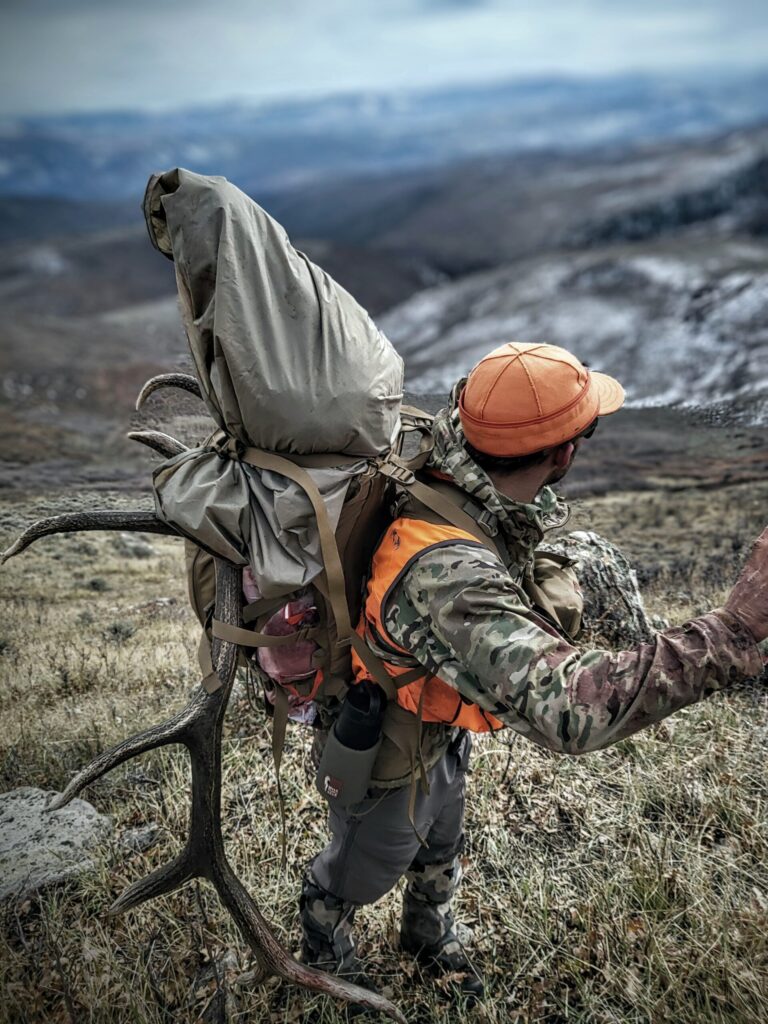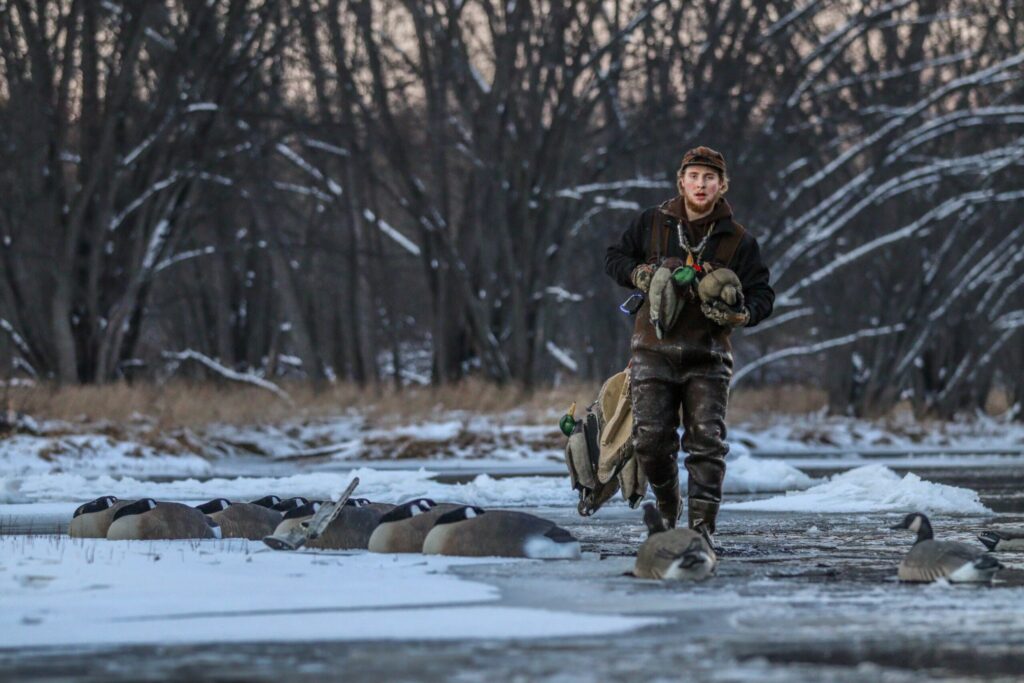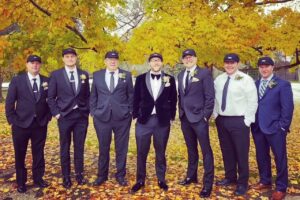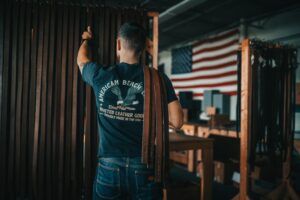Photo by Dakota Pagel (@slate_media) featuring The Original Stormy Kromer® Cap in Partridge Plaid
From our ancestors to present-day outdoors enthusiasts, hunting has been more than just a crucial part of survival—it’s been a way of life, a connection to the land, and a testament to human ingenuity. The story of hunting in North America is as rich and varied as the landscapes we cherish, evolving from a means of sustenance to a beloved tradition that embodies the spirit of adventure and respect for nature.
The Original Conservationists
Long before the first European settlers set foot on North American soil, Native American tribes had perfected the art of living in harmony with the land. Their hunting practices were not just about survival but about balance and respect for the natural world. Using tools crafted from the very environment they inhabited—bows made from flexible wood, arrows tipped with carefully knapped stone, and ingenious traps—these skilled hunters passed down their knowledge through generations.
Native American hunting practices were deeply intertwined with spiritual beliefs and sustainable living. Many tribes, such as the Plains Indians, developed complex hunting rituals and ceremonies to honor the animals they hunted. The concept of taking only what was needed and using every part of the animal was not just practical—it was a sacred duty.
The Fur Trade
The arrival of European fur traders in the early 17th century marked a significant turning point in North American hunting history. The demand for luxurious furs in Europe created a booming market that would reshape the continent’s economic and ecological landscape.
Native Americans found themselves at the center of this new economy, trading valuable furs for guns, ammunition, and other European goods. This exchange not only altered hunting techniques but also dramatically impacted Native American societies and their relationship with the land.
The fur trade attracted British, French, and later American trappers who ventured deep into the wilderness in search of beavers, foxes, and other prized animals. These ambitious individuals embodied the spirit of resilience and adaptability that would come to define the American frontier.
The Rise of Recreational Hunting
As the mid-1800s approached, the fur trade began to wane, but hunting was far from disappearing. Instead, it transformed into a recreational pursuit, capturing the imagination of a new generation of outdoors enthusiasts.
Enter Daniel Boone, the legendary all-American frontiersman who helped normalize hunting as a sport for the common man. Boone’s adventures, whether factual or embellished, sparked a cultural shift that saw hunting evolve from a necessity to a cherished pastime.
This era also saw the birth of hunting clubs and the concept of the “sportsman.” These organizations played a crucial role in establishing early conservation efforts and ethical hunting practices.
Conservation and Modern Hunting
The 20th century ushered in a new era of wildlife management and conservation. As America’s population grew and wilderness areas shrank, it became clear that unregulated hunting could lead to the extinction of many species. This realization led to the establishment of hunting laws, seasons, and bag limits—all designed to ensure the sustainability of wildlife populations. Organizations like Ducks Unlimited (founded in 1937) and the National Wild Turkey Federation (established in 1973) emerged as powerful voices for conservation

Photo features Casey Gorsett (@casey_gorsett) wearing The Original Stormy Kromer in Blaze Orange
Today, hunting licenses and permits generate significant revenue for conservation and wildlife management programs. This model of conservation through regulated hunting has become a cornerstone of North American wildlife management, often referred to as the North American Model of Wildlife Conservation.
At Stormy Kromer, we’re proud to be part of this rich hunting heritage. Our gear has accompanied hunters for over a century, from the misty mornings of duck blinds to the crisp autumn days in deer stands. We understand that hunting is more than just a sport—it’s a connection to the land, a test of skill and patience, and a way to carry on traditions passed down through generations.
Whatever your favorite hunting season may be, we’re honored to be considered even a small part of that tradition for so many folks across the U.S. So, as you head out into the woods or marshes this season, remember that you’re not just participating in a sport—you’re carrying on a legacy as old as our continent itself.







